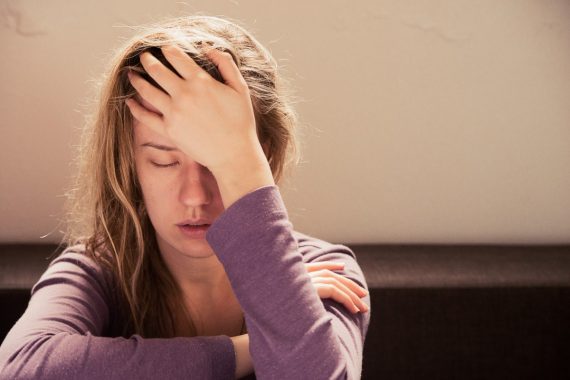A quarter of 17-19-year-olds have a probable mental disorder, up from one in six the year before a report from NHS Digital has said.
The annual online survey done as part of the Mental Health in Children and Young People in England report, found that 25.7% had a probable mental health disorder compared with 17.4% in 2021 and 10.1% in 2017.
Those affected were more likely to live in a household with money issues or using a food bank, the report which also looks at life circumstances found.
The rate of mental health issues had risen slightly in younger age groups at 18% in 7-16 year-olds compared with 17.4% last year.
While in younger age groups the rates of probable mental health disorders were higher in boys then similar between girls and boys of secondary school age by the time children reached 17 to 24 years the prevalence was 31.2% in young women compared with 13.3% in young men.
Among 17-to-22 year olds with a probable mental health disorder, 14.8% reported living in a household that had experienced not being able to buy enough food or using a food bank in the past year, compared with 2.1% of those unlikely to have a mental disorder.
Overall, one in five 7-to-16-year-olds lived in households that experienced a reduction in household income in the past year but among those with a probable mental health disorder the figure was one in four, NHS Digital reported.

Children with a probable mental disorder were also more likely than those without to report negative views and experiences at school, including feeling unsafe and having higher rates of absence.
They were also more likely to report having experienced bullying online, the survey of 2,866 children who have been followed since 2017 in the study by the Office for National Statistics alongside the University of Cambridge and University of Exeter.
Minister for mental Health Maria Caulfield said £2.3bn was already being invested in mental health services, which would mean an extra 345,000 children and young people able to access NHS-funded support by 2024.
She added that the Government was committed to increasing the number of mental health teams in schools to nearly 400 by April 2023.
‘These figures highlight how important it is that we do everything we can to support our children and young people with their mental health,’ she said.
Sophie Corlett, interim CEO for mental health charity Mind said the figures in were ‘deeply worrying’ and showed the impact of the pandemic and cost of living crisis.
‘We cannot continue to watch young people’s mental health needs increase without seeing action.
‘The UK government will be failing an entire generation unless it prioritises investment in young people’s mental health services, and specifically funds mental health hubs for young people.’


















Not if you dropped them in the Maldives or Dubai.